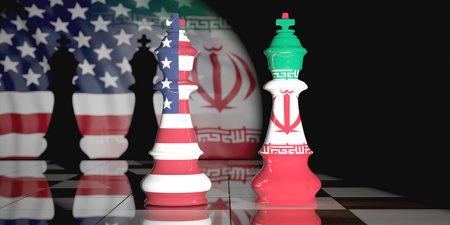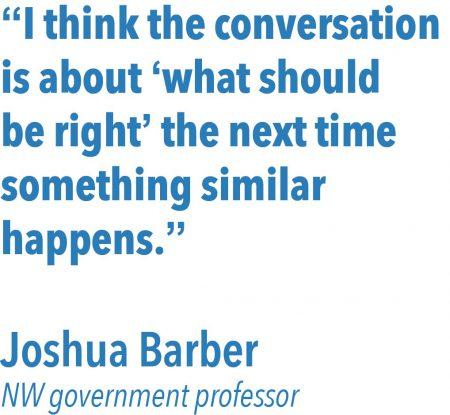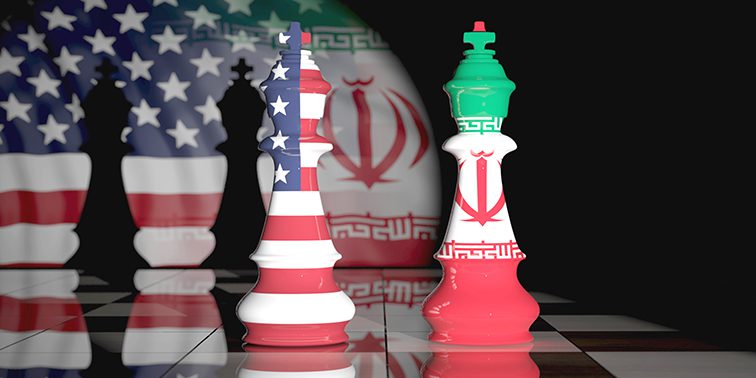| January 22, 2020 | Jill Bold | editor-in-chief |
|---|

Since President Donald Trump dispatched a missile to kill the beloved Iranian General Qasem Soleimani just outside of Baghdad International Airport Jan. 3, the U.S. citizens have been weighing the implications of these actions. Both detractors and supporters on TCC’s campuses have taken notice of this military action by the president.
Some students acknowledge the power of the president and support his actions. Twenty-two-year-old TR nursing student Chellenn Aldrich agrees that the president is right in his decision and has the power to strike at will.
“He’s our president. That’s what we elected him to do,” Aldrich said. “To make the tough decisions that no one else can make.”
Nineteen-year-old NE student Trey Touchstone said he breaks with the opinions of most of his peers when he showed support for Trump’s actions.
“Presidents prior have done this,” said Touchstone. “I also do not believe we will end up in World War III over this.”
The seriousness of these actions by Trump has alarmed other students who disagree with his decision to strike. TR student Richard Binder, 55, who served in the U.S. Army from 1983-1991 disagrees with the President’s choice to act unilaterally.
“He has other people he needs to work with,” said Binder. “I was in the military. It’s a team.”
Twenty-year-old student Nathan Beam will soon study international relations and said a better balance between the executive branch and the congressional branch requires more power to be shifted to Congress.
“I think it would be good if Congress had more power to limit the President’s war powers,” said Beam. “We’ve never declared war since Vietnam, but the president has deployed troops over and over again. I believe we need to give Congress more power.”
NW government professor Joshua Barber said Congress might be ignoring the fact that their personal feelings about the president are influencing their negative reactions, and they may not be as upset with these actions as they appear.
He said it seems more likely that Congress would take a stronger action beyond the concurrent resolution, a resolution that doesn’t possess any real force of law.
“Their beef with the president is on the process, not this particular outcome,” Barber said. “I have a hard time believing that more than a handful of congressmen would discourage the containment or elimination of the Quds forces leader.”
NE student Maggie Maa said she does not support Donald Trump and strongly opposes the decision to send that missile.
“I am a pacifist and don’t like violence in general,” said Maa. “But also, attacking Iran out of nowhere is a dumb decision on his part.”
TR student Rigo Ramirez, 19, said he understands both opinions.
“Iran has attacked bases of ours before,” Ramirez said. He said that after researching this issue, he understands why some people wouldn’t support this military strike by the president.
Barber explained his take on why the president took advantage of this chance to take out Soleimani.
“The president found a short-lived opportunity to be able to strike the ‘shadow general’ and master ‘state-destabilizer’ outside the comforts of his host homeland,” Barber said. “The president, faced with the history of debacles of the 1979 Iranian hostage crisis and the more recent Benghazi, Libya embassy catastrophes, the president decided to try something different and roll the dice on the outcome.”
The U.S. and Iran have a 70-year history of conflict that some students admit they are not very educated about.
Some students found their lack of knowledge prevented them from forming an opinion.
“I don’t have enough information to fully say if it was right or wrong,” said SE computer science student Joeneh Lilite, 19. “But I do feel like…it should have been more discussed with other branches in the government.”
NW student Paul Moturi hesitated to answer the question for fear of sounding uninformed.
“I really can’t say a lot about it,” said Moturi. “I have just seen some news clips, but I haven’t researched it anymore.” He admitted his answer could change when he found out more information about the situation.
Some students have expressed a concern that the president’s motives are more selfish than he is revealing, and SE student Laurie Hermosillo said she agreed there was a more self-serving reason for the president’s actions.
Trump was impeached in the House of Representatives on Dec. 18 for abuse of power and obstruction of Congress. Additional articles of impeachment could be added as a result of this strike.
“I think he’s doing it so that he can start a war and stay in office,” Hermosillo said.
The discussion continues beyond trying to distract U.S. citizens.
“This is a continuous conversation in the modern era that goes back to Eisenhower about powers vested from one branch of the government to another,” said Barber. “This won’t be the last time Congress and the president fight about this. I think the conversation is about ‘what should be right’ the next time something similar happens.”

